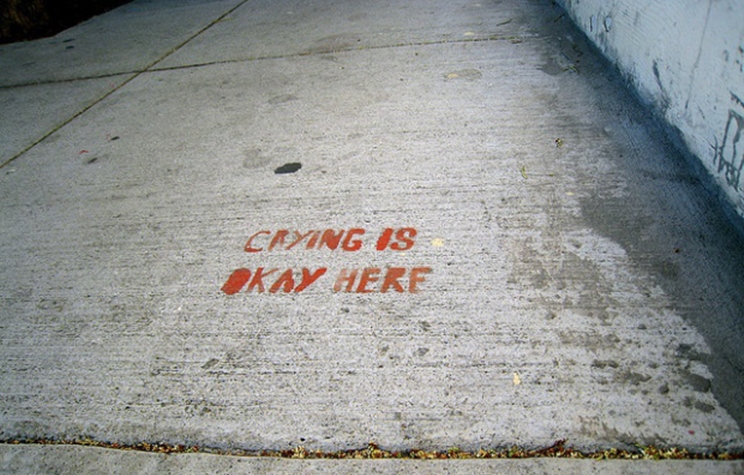When faced with grief, trauma or major disappointment, psychologists, self-help blogs, and wise friends encourage us to cope and accept. Trying to win old battles, the argument goes, does more harm than good. Adapting to the new reality and “moving on” is encouraged; dwelling on the past, analyzing mistakes and considering “what ifs” is not. Should this also apply to our politics? When facing illiberal regimes, a stream of victories by populists and a seemingly unstoppable retreat of liberal democracy, should we also simply adept to the new reality and “make our peace”?
I would argue that this is the strategy many people have been pursuing in Hungary – and which, rather that helping the country recover, made things worse. Polish opposition – both its parties and supporters – might learn from how Hungary got from denial and anger to acceptance of an illiberal regime.
After gaining power with a two thirds majority in 2010, Hungarian Prime Minister Viktor Orbán and his party, Fidesz, started to systematically dismantle Hungarian liberal democracy. They have been so successful in this endeavor that Fidesz managed to gain a two thirds majority for the third consecutive time this April. Analysts differ on how this new regime should be named: whether it is still a democracy – however flawed – or if it is a “hybrid regime” – or maybe even an autocracy. Whatever the name, It is clear liberals and democrats need to respond to this phenomena. It is in these responses that theories of grief are relevant.
The first response to the success of Fidesz by Hungarian liberals is often denial. After a better than expected result for the government in April 2018, opposition parties and ordinary voters began to raise the issue of electoral fraud. Indeed, in many, especially rural districts, irregularities often occurred: some votes cast for opposition parties simply disappeared. In some booths, no votes for the opposition parties were found. Denying the fact that Fidesz won the election was easy with these irregularities.
Denial was further enhanced on social media, where many opposition voters voiced sentiments like “It is impossible that so many people voted for Fidesz – all our friends dislike the government!”. Because of media bubble and the effects of social media, opposition voters often simply do not meet Fidesz supporters.
Of course, after a few weeks, denial started to disappear. Statistical models showed that while irregularities did occur, they had more to do with honest mistakes or maybe overzealous but marginal local government employees than with systemic fraud. In fact, these irregularities appeared in fewer instances than during the previous elections; they were simply more in focus.
Denial than led to anger. Opposition supporters in Hungary are very angry with the political elite in general but with opposition parties in particular. At rallies held after the elections, the opposition parties bore the blunt of the criticism voiced by anti-government voters. Anger is also very widespread: the media, pundits, and Fidesz-voters are as much in focus as are the parties.
In the meantime, opposition organizations have been involved in “bargaining”: the rationalization and belittling of their own defeat. “If only” there was more access to the media; “if only” opposition parties had cooperated more; “if only” some strategic or tactical decisions had gone the other way, the result would have been different.
This sort is bargaining rarely lasts long; after all, after the third consecutive victory for Fidesz, the nuances of defeat are not really exciting. Thus we reach stage four: depression. In Hungary, this is often accompanied by blaming the people. “Hungary deserves this”, the statements go; “the government is only as good as the people”. By blaming the voters, opposition opinion leaders fuel their own depression but become even less popular with the public.
By mid-2018, Hungarian opposition forces – and many voters – seem to be reaching stage 5: acceptance. The notion that “it could be worse”. The idea that it is best to make peace with the illiberal regime. The prime minister now talks of plans until 2030 and many of his former opponents agree. Many of his rivals realize that it is easier to pursue a career by accepting the regime; cooperation is more beneficial in the short run than opposition.
While with a personal loss, reaching the acceptance stage might be beneficial, in democratic politics, it is very dangerous. Even if illiberal forces seem to be on the rise, there is nothing inevitable about this – unless we make it so. Democracy, fortunately, cannot die as a concept – but it can disappear if we seem to accept that it is dead. Acceptance of the Fidesz-regime and its rationalization as “not as bad” actually plays into the hands of PM Orbán.
It does not require an intimate knowledge of the Polish political scene to realize that these stages are present in Poland as well. However, Poland – where the PiS rule is newer and less established than Orbán’s government in Hungary – is at a less “advanced” stage of accepting illiberalism. Based on the Hungarian example, I have one suggestion for my Polish friends: do not proceed down on the stages of grief. Denial is never beneficial, but anger, in politics, against an illiberal regime, can be more useful than acceptance.
Illiberalism, the retreat of democracy is not something that should be accepted lightly – no matter what the autocrats want us to believe. In fact, acceptance of the inevitability of this process itself plays into the hands of the democrats’ opponents. A little anger, if sustained, can be very helpful against illiberals.



